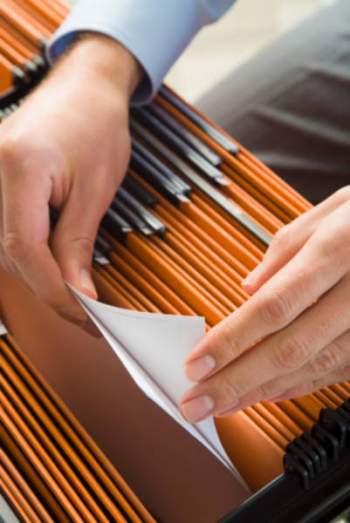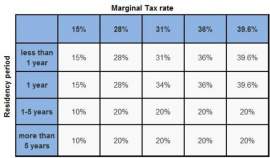
Knowing the Small Business Tax Deductions

Business tax deductions are important to any small business with a handful of paid employees. The more business tax deductions in which a small business qualifies for, the lower the business's taxable profit will be. The business will then have extra money at the end of the tax season to reinvest, spend, or whatever reason it would need it for.
To prevent itself from missing out on business tax deductions and other benefits, it is important for a business to remain organized and to keep an adequate backlog of company documents and records. For small business tax deductions, there are two main types of expenses that should be kept in mind when filing tax returns: business expenses and capital expenses.
Business Expenses:
Business expenses include all costs that are incurred by a company which are required for the business to operate its daily operations normally. For businesses that operate for a profit, costs of conducting business are almost always tax deductible. Examples of business expenses include the renting of storefronts or office space, business trips, and employee payroll are all operations within a business that may be written off.
Capital Expenses:
All costs that are incurred by a business for purchasing assets such as property and factory equipment, which have life spans of a year or more and improve the overall quality of the business's output are capital expenses. Capital expenses do not qualify initially as a business tax deduction like business expenses do; instead, capital expenses may be recovered by a small business through the process of depreciation, amortization and/or depletion.
Generally, these processes allow a business to deduct a portion of the value of these assets each successive year in order to recover the money spent on assets over a certain amount of time. For example, if a plumbing company purchases a van to drive to customer houses, the value of the van is depreciated over time as a business asset and the depreciation value is deducted through course of the business's ownership of the van.
Specific Small Business Tax Deductions:
Whether expenses are business or capital expenses, the following items are business tax deductions commonly found within small businesses:
Auto Expenses:
In many cases, small businesses purchase vehicles for employees to travel with for conducting activities outside of the workplace. If a small business owns a vehicle, the costs of maintaining the vehicle and the depreciated costs are tax deductible. There are two main methods for claiming expenses on a company vehicle: the actual expense method and the standard mileage rate method.
The actual expense method requires a greater amount of information to be kept on file so that all expenses are recorded and added up for the tax return. In the standard mileage rate method, the number of miles driven using the vehicle are recorded, including all expenses of paid tolls and parking costs. As of 2010, the standard mileage rate is 50 cents per mile driven (down 5 cents from 2009, in which it was 55 cents per mile).
A brand new car purchased by a small business for company use gives a larger return on small business tax deductions. In addition, the actual expense method is the only method which covers depreciation on the vehicle. The standard mileage rate can only be used by a small business if the method is chosen in the first year that the vehicle is put into use by the company. Company cars are allowed to be driven for personal use, though only the business use of the car may be tax deductible.
To ensure that only the business end of vehicle use is included in small business tax deductions, the IRS keeps track of a business owner's vehicles. If the owner only has one car for both business or pleasure, the IRS will not accept business tax deductions for non-business usage of the vehicle.
Expenses of Beginning a Business:
When a business is in operation, it may write off certain business expenses, such as advertising, office supplies and repairs. Before a business begins its operations, however, any capital expenses placed into a business for getting it off the ground may be deducted up to $5,000 in the first year of business.
The remainder of such capital is required to be paid off in equal amounts over the following fifteen years in which the business is still operating. Since most businesses do not begin making a profit in its first few years of operation, business deductions for capital expenses are important to offset losses incurred by a business in its infancy.
Books and Legal Fees:
The expenses that a business uses for professional legal guidance and/or business books purchased for further legal guidance are fully business tax deductible. When a fee is paid to a lawyer, consultant or tax professional, it may be deducted in the year that it the payment is given. If the services are paid through the terms of a contract for several years, however, the payment must be deducted over the course of the contract for services.
Entertainment:
When operating a business, it is not uncommon for a business to entertain clients and prospective customers through various means. For entertainment, small businesses usually can deduct 50 percent of its cost if it is directly related to the business's operations and the business is discussed during the entertainment event or if the event is associated with the business and meetings are held before and/or after the event.
When an entertainment event takes place at a business, in order to ensure that the business tax deductions for it are handled properly, the receipt record should be kept with a note on the receipt explaining the purpose of the event.
Traveling:
Any necessary expense that is incurred during a business trip is small business tax deductible. This can include airplane tickets, taxis, hotels, ordinary meals, expenses associated with car travel, and even clothing dry cleaning. As a general rule, pleasure expenses may indeed be included in the deductible amount, however, if other family members not associated with the business are taken along on the trip, only the business employee's expenses are included.
Interest:
When a business owner is using credit to finance a business purchase, the interest and carrying charges are tax deductible. In addition, a personal loan which is used to finance the business is fully tax deductible as well. It is important for the business owner, as such with all matters, to keep organized and detailed records to prove that the money was indeed used to finance the small business.
Purchasing of New Equipment:
Although must equipment purchased for small business use must be placed under capital expenses, certain qualifying equipment may be tax deducted completely the same year in which they are bought. According to Section 179 of the Internal Revenue Code, up to $250,000 worth of brand new equipment may be included in small business tax deductions. Real estate, inventory bought for the purpose of resale and other property are not included under these provisions.
Software for Business Use:
New software bought for the purpose of business operation may be depreciated over a period of three years. There are some exceptions, however. Software which was purchased and used from January 1, 2003 through December 31, 2010 are eligible for business tax deductions under Section 179, which states that 100 percent of the cost of the software will be fully deducted. In 2011, software will no longer be deducted when bought straight off the shelf.
In addition, software which is included in the purchase of a new computer and is not listed separately as a cost, it is included as the hardware and depreciated over a five year period. The entire computer system, including all software may be written off all at once if it is below a certain allotted amount. This amount changes every year ($250,000 is 2009 and $133,000 in 2010).
NEXT: Understanding Schedule C Tax Deductions


















